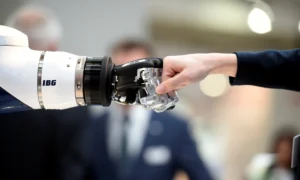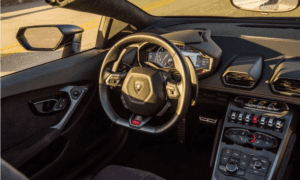AutoLeadStar is an advanced, AI-powered marketing platform that makes personalized, automated digital marketing accessible for every car dealership.
Local car dealerships are community-based businesses in an industry that has, to a surprising degree, been impervious to channel disruption. Ecommerce has yet to see wide adoption, while legacy contracts prevent manufacturers from experimenting with direct-to-consumer sales. It’s still a vertical where handshakes and non-virtual test drives are key nodes in the customer journey.
Given today’s standards of social distancing, however, effective auto companies need to tackle at least the early stages of relationship building across multiple digital channels and potentially without meeting the customer face to face.
AutoLeadStar offers advanced digital marketing tools like AI-driven ad personalization, audience targeting that syncs with dealers’ inventory databases and CRMs, automated campaign optimization for paid search and social, and integrated lead nurture sequences. The platform also includes powerful built-in analytics that draw all the relevant customer metrics into a single place, for improved marketing and customer behavior insight.
The company’s CEO, Aharon Horwitz, spoke with me about the game-changing power of digital transformation for automotive marketing.
Your product incorporates a lot of machine learning and cross-platform functionality. Would you say that these are the most sophisticated aspects of AutoLeadStar from a tech perspective, and why do you think it was so important to implement them?
Dealers really know how to look at someone shopping and match them with a great car. This worked well when shoppers would visit five or six dealerships before buying. Today most of the shopping happens online, and car buyers may walk into only one or two dealerships. When we founded AutoLeadStar we wanted to take that dealer savvy and insight and use it to elevate the marketing funnel.
We see it as the difference between running a billboard and making a personalized match. Unfortunately, most of the tech and services dealers access end up doing the billboard thing. To get really targeted on all the dealer’s inventory and services you have to have really strong tech that can ingest and process all the available data, and get that out into the market.
You were working in marketing automation tech for years before you launched AutoLeadStar in 2016. How are car dealers different from professionals in other sectors when it comes to tech adoption, and what have you built into your product to address those considerations?
Automotive marketing evolved as an entirely separate ecosystem to the martech that most people recognize. I, personally, have yet to encounter a dealership using Salesforce.
All the software there is really native to the industry, and it suffers from some lag when compared to the cutting edge in the broader market. When we came in, we had really good technology, but zero knowledge of the automotive side. We spent most of 2016 and 2017 learning how to meld the two and build a strong commerce enablement platform for dealers.
Today we like to think that we hybridize a Marketo or HubSpot style solution with aspects of Shopify. It’s built, however, in a fully aligned way to how car shopping happens and how the dealers structure their data.
What are the biggest changes to the customer journey that you’re seeing taking place over the last year in the automotive industry?
It may shock some people to find out that despite all the hype and buzz around pure-play digital folks like Carvana, our research suggests that 98% of non-private transactions are taking place on the 30,000 or so franchised and indy rooftops.
What consumers want, though, is exceptional accommodation when it comes to the buying experience, the type of service they get when buying from Amazon or other digital fulfillers. This does not necessarily mean people are buying online, but they want the buying process to work for them, and dealers get it.
And from what I’m seeing, dealers are taking these changes personally. These traditional retailers have spent the past decade or so being disintermediated from their customers, first by aggregator platforms and now by the digital dealers that are selling nationally. We find that the pandemic has massively accelerated the dealer’s commitment to going digital in a way that serves their customer.
They are fighting back and rebuilding their direct position.
Why do you think people are still reluctant to opt for a fully ecommerce shopping experience for cars? Is it inevitable that this will change, and what do tech companies need to do so they can facilitate that change while keeping local dealers in the picture?
I’ve seen some interesting data that younger millennials visit more dealerships when buying a car than older population segments. I think it’s clear that a person’s second largest purchase is not the same as buying a pair of shoes. There’s a lot more involved, a lot more complexity.
Good dealerships are able to build a strong sense of connection and trust with the consumer, something sorely needed when owning and servicing a car.
I think seeing what Tesla, and to certain extent companies like Carvana and Vroom have done, is fascinating and portends a lot of future opportunities for ecommerce for car buying. However, for now, dealers have a real advantage.
They need to focus on becoming tech companies and enabling full-funnel commerce by using platforms like ours. If they can find the customers, give them the right message, and then create a great click and brick experience, everyone wins.
One final point on this. Despite an occasional bad rap, car dealerships are this wonderful phenomenon in the global economy. Because of regulations passed decades ago, they have managed to protect their business from being obliterated by monopolizing platforms that would love to take over and own car sales channels.
The net result is employment, directly and indirectly, for millions, at living wages that don’t require a degree from MIT. We believe that dealers represent a really wonderful part of the economy, one that powers opportunity.
Almost all of the stories we see about Israeli tech companies expanding internationally originate in Tel Aviv and end up in New York or the Bay Area. You guys are coming out of Jerusalem and have expanded to the US using Miami as your headquarters. Why have you chosen this “road less traveled,” and how has it colored your startup journey?
Hah! Great question, I hadn’t thought about that. To me, being a Jerusalem-founded startup means being a business fueled by a social mission alongside the commercial. And Miami embodies energy, diversity, possibility, and hustle.
We feel that we’re in very good company here in Jerusalem, especially with MobileEye being a Jerusalem company. We love the roads less traveled, because there’s a lot of value in opening up to different viewpoints.



































